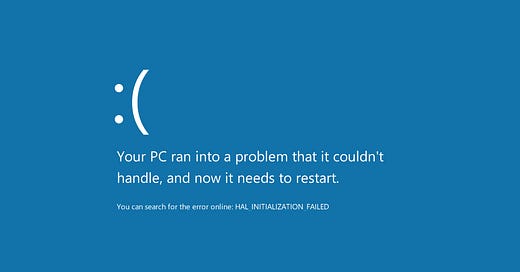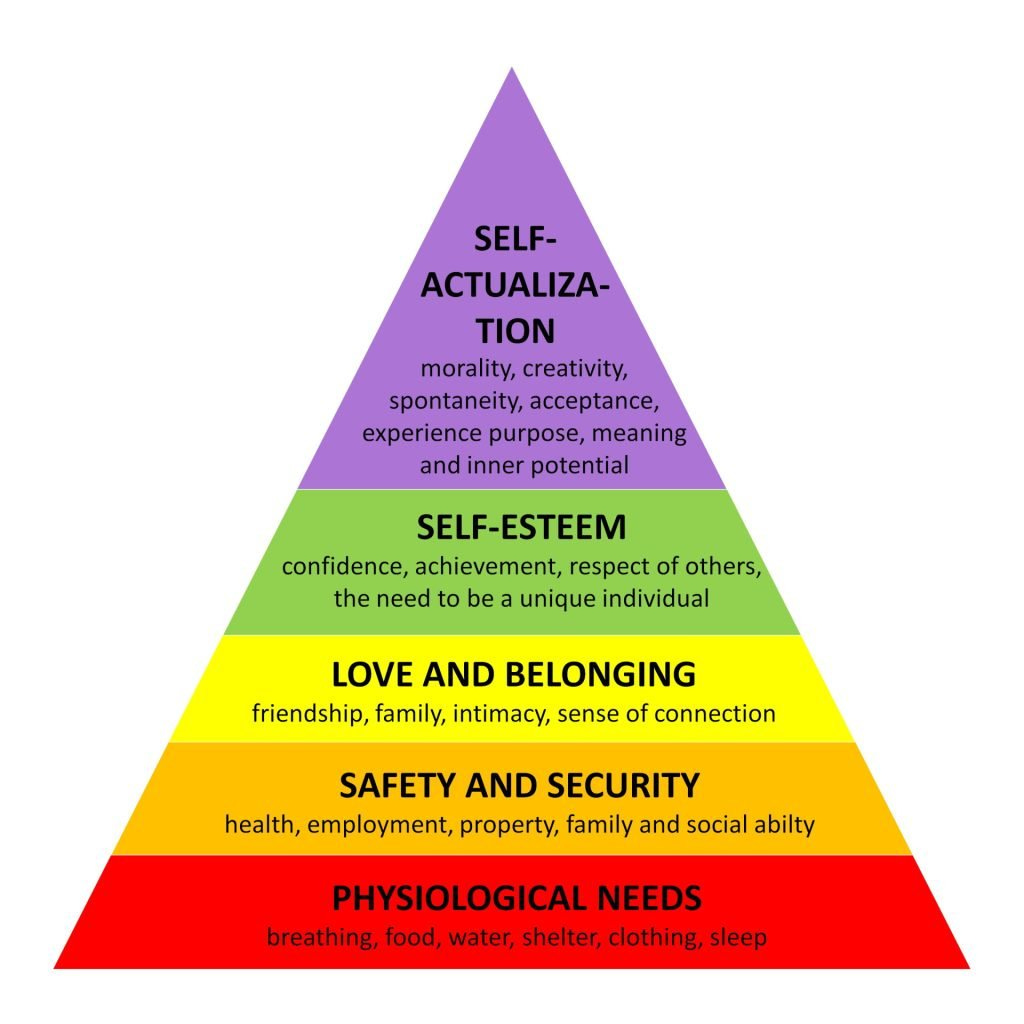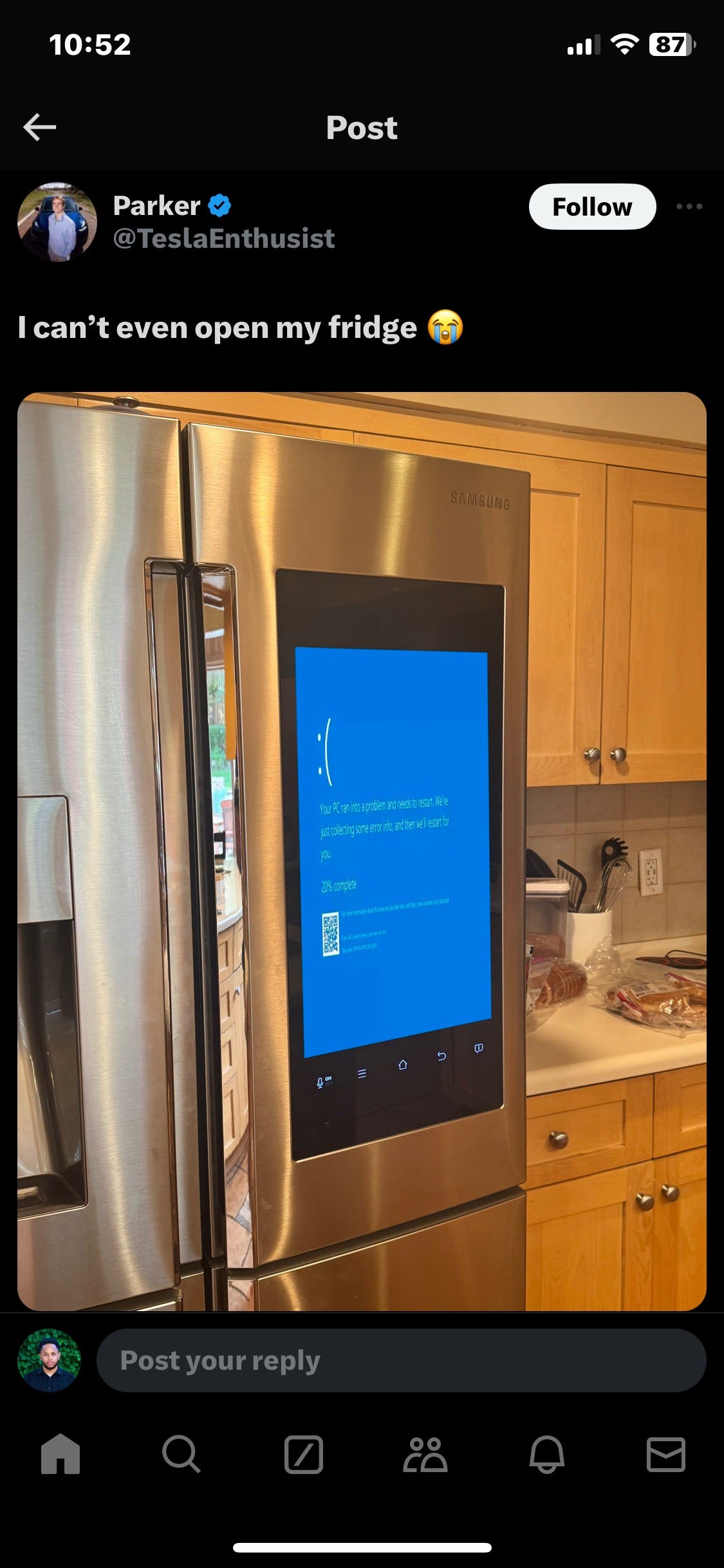The world changed on Friday, July 19, 2024. People became very aware of the BSOD, also known as the "Blue Screen of Death." But why? Over 8 million computer systems were crippled due to CrowdStrike, a cybersecurity company that is, or was, the leading choice in the industry for many companies all over the world to be safeguarded against hacks. Since 2011, they’ve become a very important player in the tech world. As software companies often do, they pushed the update that was designed to prevent things related to external cyber attacks. Sounds great, right?
Well, this update triggered a logic error that made the native operating system crash. This operating system crash only impacted companies running on Microsoft Windows, not Mac or Linux. This wrecked banks, airlines, gas stations, point-of-sale systems, and more. A loved one from South Africa couldn’t access their bank account. A friend traveling from Washington, DC, had their flight delayed for hours. The biggest threat to a system is it’s point of failure. CrowdStrike was a single point of failure within many systems around the world. That’s a problem.
This made me wonder: what would have happened if the system was set up in a decentralized way? Bitcoin is not only digital gold, a medium of exchange, immutable, and divisible, but it is also OSS, also known as open source software, that anyone can build upon. A decentralized system like Bitcoin has a key benefit as an alternative system; the lack of a central point of failure. Bitcoin's decentralized network is not controlled by any single entity, so an issue with one component would not bring down the entire system. This may make Bitcoin more resilient to the kind of widespread outage caused by the CrowdStrike update. Bitcoin layers such as Stacks or even infrastructure layers like Arch Network may be able to scale Bitcoin to higher heights.
The acts of few affect the many. This is true, not only in life, but also in technology.
If AWS goes down, so do a large number of websites. If JP Morgan fails, this will ripple to many more banks. If America falls, it will have consequences on a global level, especially when looking at monetary policy. The world is getting crazy, so we have to do what I call “Planning to Z”. What are the most important aspects of your life? I frame things like Maslow’s Hierarchy of Needs, which you can see here:
While this addresses the internal aspects of needs, based on a human’s perspective, I’ve created a way for people to assess their own “System of Life”. What do you need to ensure that you have, no matter what comes in this ever-changing world?
This is the basis that every human on the planet needs to ensure they are secure.
Food. If stores close and distribution channels are not bringing more bread or cases of water from one state to another or one city to another, how will you eat or drink?
Clothes. The elements are changing. More hurricanes. More tornados. More flash floods. Hotter summers. Colder winters. Do you have the clothes needed for the elements in your part of the world? Boots if drains overflow? Mylar blankets?
Shelter. Let’s run a scenario. Calamity strikes. Mass looting, protests, civil war, etc. After emotions and rioting have run dry, people will begin looking for sustenance, like food or water, since these are among the first things that get cut during times of unrest. If the stores have been looted, people will begin looking for homes. Is your home secure? Are you in a city that’s densely populated and surrounded by people that you don’t know in an apartment? Do you have measures in place for safety?
Transportation. Continuing on with this scenario, what would happen if your “home” was no longer deemed safe? Do you have the means to up and leave? This could be a flight fund or a car with gas cans stashed in the event that the gas stations are closed.
Security. This may have a varying definition depending on your lifestyle, but are you able to protect yourself? Do you have the ability to communicate with loved ones in a secure way? Is your internet truly YOUR internet, or can it be shut down or censored? What about the possible threat of EMP? Do you have a Faraday cage for electronics? If banks falter, this means safety deposit boxes may be lost. Do you have cash on hand? Gold coins? Silver coins? Bitcoin? Do you have health records or records of prescriptions? Do you have a first aid kit? Solar generators for power? Batteries?
This is not to scare you, but it is a mental drill to run so that you may begin to assess your life and realize how you may have been trained to simply trust others with responsibilities that is your own. We are creatures of habit and have been programmed for years to look at the world one way. But the world is changing.
Many years ago, I learned that the only constant thing in life is change. If we are living in a state of comfort at all times, we aren’t stretched to think about critical things such as a life without smart TVs, smart cars, smart water, or even smart refrigerators!
This is only a test. We are doing a mental drill to plan to Z, because we live in a world where one software update can ground planes, make point-of-sale systems not accept ApplePay or Google Pay, and turn ATMs into placeholders. Bitcoin reminds us that decentralization matters because a single point of failure changes everything.







